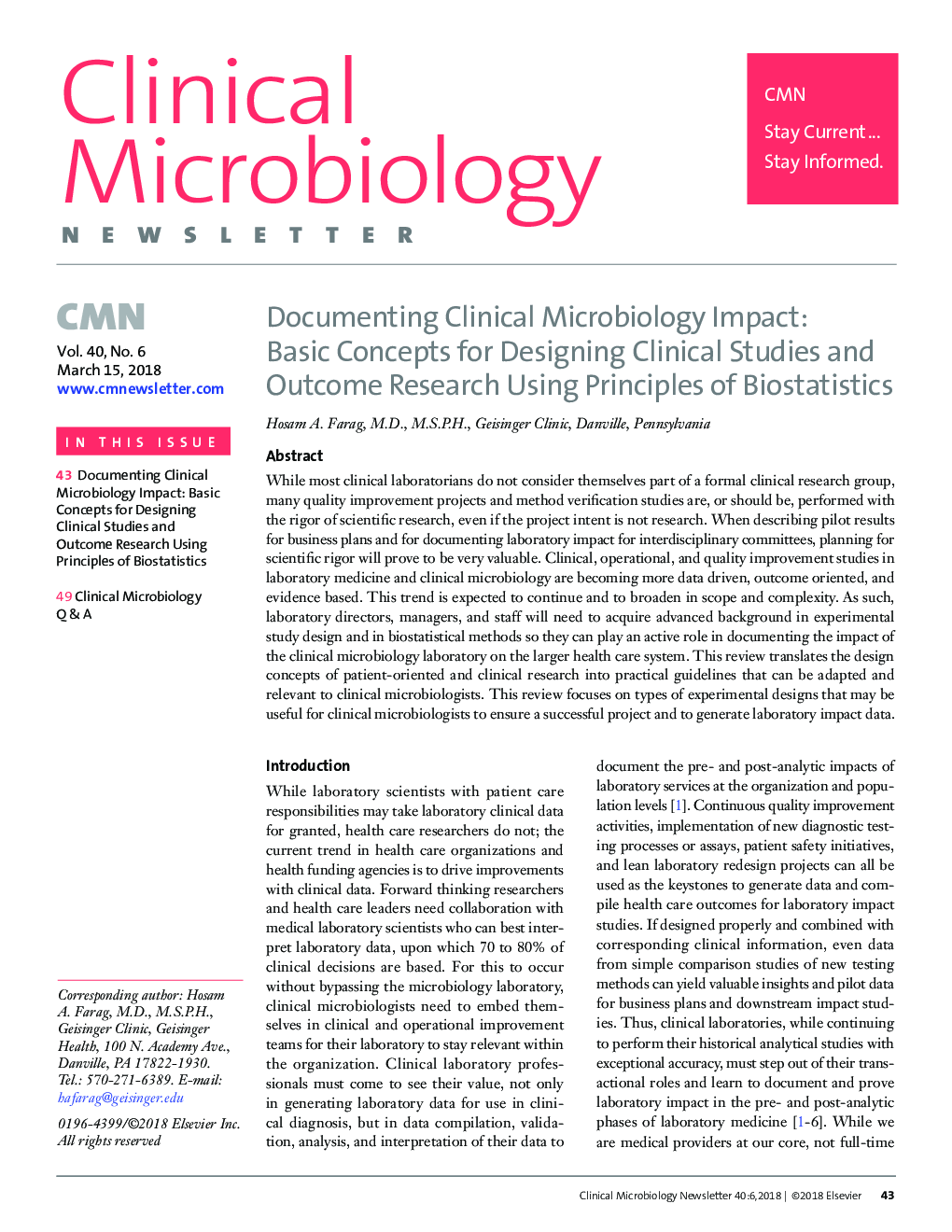| Article ID | Journal | Published Year | Pages | File Type |
|---|---|---|---|---|
| 8736842 | Clinical Microbiology Newsletter | 2018 | 6 Pages |
Abstract
While most clinical laboratorians do not consider themselves part of a formal clinical research group, many quality improvement projects and method verification studies are, or should be, performed with the rigor of scientific research, even if the project intent is not research. When describing pilot results for business plans and for documenting laboratory impact for interdisciplinary committees, planning for scientific rigor will prove to be very valuable. Clinical, operational, and quality improvement studies in laboratory medicine and clinical microbiology are becoming more data driven, outcome oriented, and evidence based. This trend is expected to continue and to broaden in scope and complexity. As such, laboratory directors, managers, and staff will need to acquire advanced background in experimental study design and in biostatistical methods so they can play an active role in documenting the impact of the clinical microbiology laboratory on the larger health care system. This review translates the design concepts of patient-oriented and clinical research into practical guidelines that can be adapted and relevant to clinical microbiologists. This review focuses on types of experimental designs that may be useful for clinical microbiologists to ensure a successful project and to generate laboratory impact data.
Related Topics
Life Sciences
Immunology and Microbiology
Applied Microbiology and Biotechnology
Authors
Hosam A. M.D., M.S.P.H.,
